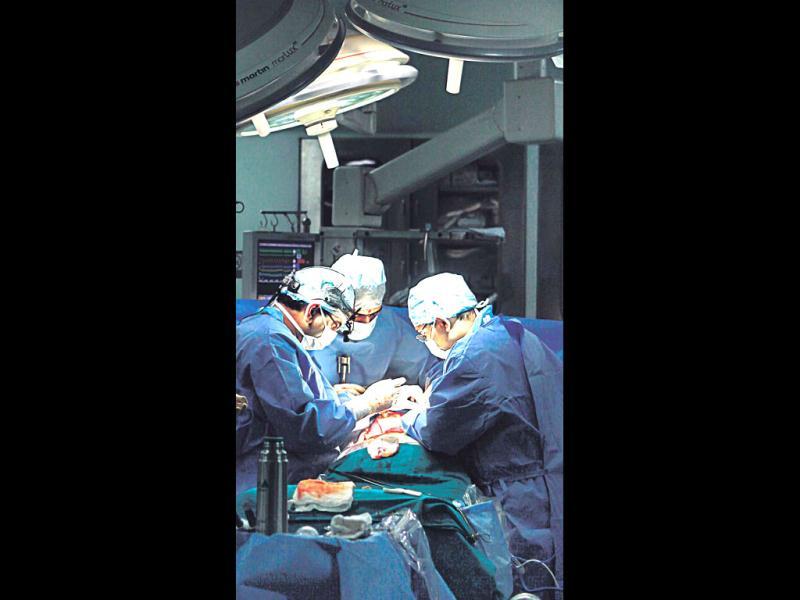Animals may become human organ donors: researchers
In a new study, US scientists transplanted hearts from genetically engineered pigs into baboons whose immune systems had been suppressed, to prevent them from rejecting the transplants.

Advances in transplant technology could allow for the use of animal organs in humans some day, researchers say.
In a new study, US scientists transplanted hearts from genetically engineered pigs into baboons whose immune systems had been suppressed, to prevent them from rejecting the transplants.
The transplanted hearts survived in their recipients for more than 500 days, researchers said.
Transplanting organs from animals, known as xenotransplantation, could replace human organs completely, or provide a stopgap until a human organ becomes available.
However, tissue rejection by the recipient's immune system remains a major hurdle to successful transplantation.
To overcome this problem, Dr Muhammad Mohiuddin, chief of transplantation at the National Institutes of Health's National Heart, Lung and Blood Institute and his colleagues used hearts from pigs that had been genetically engineered to remove genes known to cause tissue rejection in humans, and replaced them with human genes that wouldn't cause an immune reaction.
Pigs were chosen because their anatomy is similar to humans', and they mature very quickly, 'LiveScience' reported.
The researchers implanted hearts from these pigs into the abdomens of baboons, without replacing the monkeys' original hearts but still connecting the pig hearts to the baboons' circulatory system.
The transplanted hearts survived in the baboons for more than 500 days, with the baboons taking immunosuppressive drugs, the researchers reported.
'Now, we are at a stage when we can control the rejection - the most difficult part,' Mohiuddin said.
The next step will be to perform transplants that replace the baboons' hearts with the genetically engineered pig hearts.
Besides the heart, other tissues could also potentially be transplanted from animals to humans, including the liver, kidneys, pancreas and lungs, Mohiuddin said.
The research was presented at a meeting of the American Association for Thoracic Surgery in Toronto.
Catch all the Latest Tech News, Mobile News, Laptop News, Gaming news, Wearables News , How To News, also keep up with us on Whatsapp channel,Twitter, Facebook, Google News, and Instagram. For our latest videos, subscribe to our YouTube channel.


























